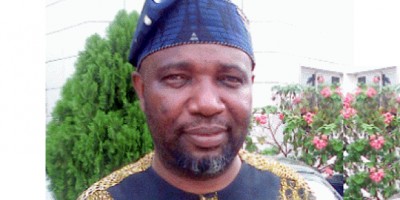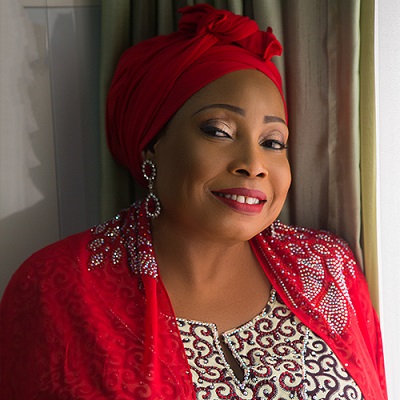PERSONAL BANKING: How to close bank account after owner’s death
 When an account holder dies, her relatives and friends are often left to handle the details, including closing bank accounts. Bank accounts should be closed as soon as possible after death, but doing so isn’t always a cut-and-dry process, according to budgeting.thenest.com.
When an account holder dies, her relatives and friends are often left to handle the details, including closing bank accounts. Bank accounts should be closed as soon as possible after death, but doing so isn’t always a cut-and-dry process, according to budgeting.thenest.com.
There are several steps to be taken to do this. We will examine them below.
Authority
If the account in question belongs solely to the deceased, the bank will not allow anyone else to alter it or touch the funds within until the court grants authority over the estate to an executor. Only then can the executor, and only the executor, access the funds to use as he sees fit towards the payment of final expenses, debts owed and, finally, inheritance. If the account is a joint or has a living trust attached, the person named on the account paperwork is authorised to close it on his or her own. No special paperwork or death certificate is required to do so — only the request of the joint account holder or living trust.
Documentation
Single holder accounts are harder to close than joint accounts or those with living trusts. Since only the deceased has legal access to the funds, the court will have to grant someone else the power to withdraw the money and close the account. If there is an estate executor named in the will, she will have to produce proof of her status and a death certificate before the bank will provide access to the account for closing. If not, a relative or legal representative must file a request for permission to close the account with the probate court in the area where the deceased lived.
The court will issue a Letter of Testamentary if there is a will involved, or a Letter of Administration if there is not. Once the appropriate letter has been received, it has to be presented to the bank along with a copy of the death certificate.
The bank will obey the court’s order to allow the person named in the letter to access the funds, and the account can then be closed.
Informing depositors
When a person dies, it is up to the executor of the estate or the next of kin to inform all originators of automatic payments – social security, pensions, dividends, etc. – that the beneficiary is no longer alive and that the payments should stop.
In some cases, the funeral director (especially in the United States) may notify depositors as a courtesy to make sure the grieving family does not forget to do so.
Reopening
In some cases, bank policies and bank computer systems will cause an account to reopen if a deposit is received. You may think that a closed account no longer exists, and so all payments will bounce back and be returned. This is often true, but in some banks, any automated payments that make their way to the closed account will be deposited and will spark the account back to life. Since banks stand to make money from the deposits, there is little chance they will refuse them.
Learning what happens to a joint account when an owner dies
If your loved one has died and you’re the surviving joint owner of an account held with rights of survivorship or as tenants by the entirety, then you can take over full ownership of the account simply by presenting the deceased owner’s original death certificate to the bank or investment company where the account is held.
But once you’ve taken over full ownership of the account, you’ll need to understand the tax and other consequences of inheriting the account.
What happens to bank accounts when someone dies?
People often neglect to include bank accounts when making arrangements for distribution of their assets after death. The deposit agreement between the bank and the account holder is one determinant for what happens to a bank account when the owner dies. However, if the deceased person had an individual account with no provisions for a beneficiary, the legal options for handling the bank account vary based on the laws, marital status and whether a will was left. Someone who has not clarified her wishes in writing might be leaving her bank accounts to distribution under the country’s laws, or the accounts might go to an inheritor who will not use the assets as she intended.
Wills and intestate laws
A last will and testament dictates who inherits a deceased person’s assets, including bank accounts if they are mentioned in the will. The will undergoes probate, taxes are assessed and the executor distributes the assets. A person who does not leave a will has died intestate. If no other provisions were made regarding the bank accounts, the government determines beneficiaries using its intestate laws.
The probate court assigns an administrator who distributes all of the assets, including bank accounts, using the list of heirs in the government’s statutes of descent. The list begins with the closest living relative of the deceased person and continues through the line of descent. Under government laws, the bank might be required to send the funds to the government’s unclaimed property office if the rightful owner cannot be located.
Payable-on-death accounts
A bank account with a payable-on-death provision names a beneficiary. Countries handle this in a similar way with little differences. Some allow an account holder to name more than one beneficiary. When the account owner dies, the funds in the account automatically go to your named beneficiary without going through probate or being mingled with other assets for distribution under a last will and testament. The POD account allows a beneficiary immediate access to funds to pay funeral expenses. The POD beneficiary has no access to the funds until the account owner dies.
Joint accounts
The surviving owner of a joint account becomes the owner of all of the funds in the account, regardless of how much money either owner deposited in the account or whether the account contract limited the surviving owner’s access to the account. The deceased person’s share of a joint account is not part of the person’s estate or subject to his will. The funds cannot be claimed by heir or creditors. A joint account owner can sign a written agreement with the other owner to make alternative arrangements for his share of the account, if the government’s laws allow. The agreement can direct that his share goes to his estate.
Income tax consequences of inheriting a joint account
As the surviving joint owner, once you take over sole ownership of the account, you will be responsible for paying the tax on income earned by the account. But what about income earned prior to you becoming the sole owner?
According to www.thebalance.com, any income earned by the joint account prior to you taking over sole ownership will be reported in the same manner as it was reported before you took the account over. This means that if the deceased owner was reporting 100 per cent of the income prior to death and his or her other assets aren’t subject to probate, then the income earned prior to you taking over sole ownership will be reported on the account owner’s final income tax return.
Or, if you and the deceased owner were splitting the income tax bill, then the income earned prior to you taking over sole ownership will be reported proportionately on your income tax return and the account owner’s final income tax return.
If the account owner’s other assets are subject to probate, then any income earned by the joint account prior to you taking over sole ownership will be reported in the same manner as discussed above except that the account owner’s portion of the income will be divided between the final income tax return for income earned before death and the estate income tax return for income earned after death.
Copyright MMS Plus.
All rights reserved. This material, and other digital content on this website, may not be reproduced, published, broadcast, rewritten or redistributed in whole or in part without prior express written permission from KINGS COMMUNICATIONS LIMITED.







